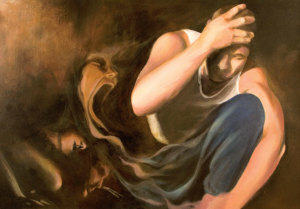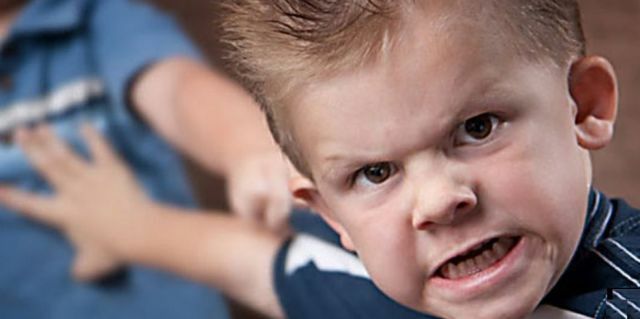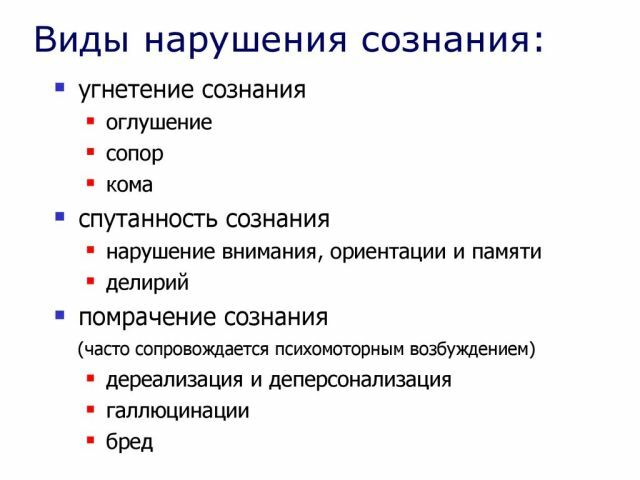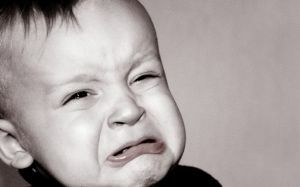 Acute psychosis is a marked violation of mental activity, manifested in an inadequate perception of reality and itself. In this disease a person can completely lose control over his behavior and actions.
Acute psychosis is a marked violation of mental activity, manifested in an inadequate perception of reality and itself. In this disease a person can completely lose control over his behavior and actions.
In this state, hallucinations, delusions and ideas are often observed, orientation in time and space is lost. The disease can develop against a background of somatic disease, psychotrauma, or after severe emotional shocks.
Psychosis in acute form is usually not a single phenomenon, but a recurring phenomenon. At that the probability of relapse is high. But unlike the chronic form, acute psychosis is a temporary mental disorder, can last several days or weeks. The prognosis of therapy is favorable.
People suffering from this disease often withdraw into themselves and do not accept the help and advice of relatives. Therefore, it is important to diagnose the problem as early as possible, so that timely therapy, even compulsory therapy, can be prescribed. After all, over time, the adequacy of a person becomes lower and lower, on the background of what may appear irreversible for the mental state of the process.
Contents
- Causes and forms of acute psychosis
- Alcoholic form
- Mental failure after childbirth
- Acute psychosis in the child
- Risk factors
- Symptoms of the disease
- Modern approach to treatment
Causes and forms of acute psychosis
According to statistics, acute psychosis affects women more often. Probably this is caused by hormonal failures.
Depending on the cause that triggered the development of the disease, the following types of acute psychosis stand out:
- Endogenous .The cause of the disease in this case lies in health( or rather, in the absence thereof) of all body systems. Provoke this form of violation can heredity, schizophrenia, neurological and endocrine disorders. This group includes and senile psychosis, when in the body there are age changes after sixty years.
- Exogenous .In this case, the external factor plays a decisive role. The reasons include: persistent stressful situations, intoxication of the body with narcotic substances, infectious diseases, alcohol abuse.

- Organic .Among the main causes are: organic abnormalities in the brain after a traumatic brain injury or with the appearance of a tumor, somatic diseases of any genesis.
- Reactive or situational .It occurs after powerful mental shocks, emotionally significant for the person, accompanied by delusional disorder, confusion of consciousness, motor disorders. This form has a very favorable prognosis.
- Somatogenic .Can develop in the presence of pathology of internal organs.
- Intoxication .Appears after the poisoning of the body. In this case, the depth of the disorder of consciousness depends on the toxin, which has caused harm to health.
- Polymorphic .The diagnosis of polymorphic disorder can be made with a number of disorders. These include changes in behavior and perception, nonsense, hallucinations. Symptoms can occur as early as adolescence and become a sign of the onset of schizophrenia.
- Abstinent .For this type of mental disorder is characterized by: anxious-paranoid attitude, a sense of tension and longing, vague fears, the appearance of suicidal thoughts.
- Post-retroviral .
Following clinical manifestations, the following varieties of abnormalities are observed:
- Hypochondriacal .This condition is characterized by an exaggerated fear for one's health, when the patient is sure that he has a particular disease.
- Paranoid .In this disorder of the psyche there is a pronounced distorted perception of reality, a suspicious perception of any events, constant doubts, discontent, rancor.
- Hysterical .In this state, the same hysterical principle is observed, it is difficult to distinguish between clinical manifestations. A patient may have a stupor, seeming dementia, childish behavior, delusions of fantasy, confusion of consciousness.
- Manic-depressive .This is one of the most serious forms of the disease, when the patient is alternating periods of prolonged depression and phases of excitability, when the patient can not sleep for days and do something. In the depressive phase, a depressed mood is observed, inhibition, slowness, loss of appetite. But the most dangerous complication is an attempt at suicide.
- Combined , combining different species at the same time.
It is often difficult to diagnose the initial cause of the disease. The trigger can be a combination of several factors.
Alcohol form
 Acute alcoholic psychosis develops in people who abuse alcohol for several years. And it develops when a person sharply renounces his bad habit. Alcoholic psychosis is manifested as follows: a sharp change in mood, there are hallucinations and nonsense, the patient is dangerous to others.
Acute alcoholic psychosis develops in people who abuse alcohol for several years. And it develops when a person sharply renounces his bad habit. Alcoholic psychosis is manifested as follows: a sharp change in mood, there are hallucinations and nonsense, the patient is dangerous to others.
In this state, you need immediate hospitalization and bed rest. Usually the patient does not understand what is happening and resists.
In the hospital, he will be monitored continuously, and an appropriate course of therapy will be assigned.
Mental failure after delivery of
This condition may appear in the first weeks after the birth of the baby. The main cause of mental disturbances is illness in the period of gestation and pain during labor. How does postpartum psychosis manifest itself? A woman becomes very emotional, whiny, irritable, there are problems with sleeping, there is no appetite.
Emotional behavior can be different. Some women indifferently treat their child, others start taking care of all the children in the ward. Some young mothers may be in a state of euphoria, others on the contrary become closed and taciturn.
It is impossible to confuse acute psychosis with postpartum depression. In the second case, delusions and hallucinations are absent. Women with such mental disorders should be directed to treatment, otherwise there may be terrible consequences up to suicide or the death of a baby.
Acute psychosis in a child
Psychotic behavior in children can be manifested in different ways. The most important sign is hallucinations, that is, the opportunity to hear and see what is not really there.
There is also nonsense, incomprehensible laughter without reason and irritation. Develop a child's psychosis against a background of short-term or long-term physical conditions. This is the use of drugs, meningitis, fever, hormonal failures. It is important to cure the underlying disease, then there will be a mental deviation.
If you suspect a psychosis, you need to perform the necessary diagnostic tests. It is required to visit a neuropathologist, a specialist in developmental diseases, an ENT doctor, a speech therapist. If the child has experienced severe stress, prolonged psychotherapeutic support will be required.

Risk Factors
Different types of mental abnormalities can occur in different life cycles. In adolescence, there is a high probability of developing schizophrenia.
In the elderly, when often there are age-related changes in blood vessels and the blood circulation of the brain is disrupted, senile psychosis is formed.
Young ambitious individuals are more likely to suffer from a manic-depressive condition. In this life period, some global changes in the fate may have a negative impact on mental health.
As for the sex factor, the statistics say that in men and women the disease develops the same way. But there are types of diseases that are more likely to affect men. This is a psychosis on the background of alcohol dependence, as well as with Alzheimer's disease. But the  manic-depressive syndrome is three times more common in women, since the weaker sex often has hormonal bursts.
manic-depressive syndrome is three times more common in women, since the weaker sex often has hormonal bursts.
If we consider the geographical factor, it is noted that mental illness affects more people in large cities. Because in a megacity a great level of stress and a rabid life rhythm, that's the psyche and suffers.
The social factor is manifested when a person has not been able to realize himself. For example, the girl did not marry and could not give birth, or the man did not achieve the set goals. In such cases, the burden of the negative is on the personality, and chronic stress contributes to the depletion of the nervous system.
Symptoms of the disease
The disease manifests itself from different angles. Everything depends on the peculiarity of the organism and the causal factor that led to a malfunction in the psyche.
Anxiety symptoms that may indicate a possible acute psychosis:
- auditory and visual hallucinations;
- changeable mood, depressive and phobic;
- change in character: irritability and nervousness appear, taste for life disappears;
- disability reduction;
- changing attitudes towards others: problems arise in contact with people, aggression, distrustfulness;
- change in the perception of the world: there is a feeling that someone is following a person, pursuing, sound and color are perceived distorted;
- depersonalization, when a person loses himself as a person;
- delusional disorder, there is a speech incomprehensible to a healthy person, without any logic and sense;
- loss of orientation in space;
- can cause olfactory hallucinations when the patient begins to irritate odors;
- exacerbation of a sense of danger, against which there is a loss of appetite, and insomnia develops.
A modern approach to the treatment of
Treatment of acute psychosis should begin as early as possible. Only a qualified psychotherapist can identify a provoking cause and prescribe a quality therapy. You can not leave a sick home at self-medication.
Modern specialists apply the following therapies:
- Medical treatment of .Usually the doctor prescribes psychotropic drugs. Tranquilizers and antidepressants are also prescribed. In the event that intoxication became the cause of acute psychosis, the measures to cleanse the body will help to remove the diagnosis.

- Psychotherapeutic therapy .At the initial stage of treatment, psychological support is aimed at building a trusting atmosphere when it is necessary to convince the patient of the importance of therapy. Further, the psychiatrist helps the patient to correctly perceive the world around so that the patient successfully socializes.
- Electroconvulsive therapy .This method is prescribed for certain types of acute psychosis. In this case, the effect of current on the subcortical center of the brain is made, as a result, there are changes in the metabolic processes of the nervous system.
- Physiotherapy, which includes different variants of .This is acupuncture, therapeutic gymnastics, occupational therapy, treatment in a sanatorium or resort, and more. This helps to remove mental overstrain and increases resistance to stress.
For qualitative treatment you need a set of different activities. Such complex is individual for each person and it can be picked up only by a good doctor. Timely therapy will help increase the likelihood of a good prognosis.
It should be remembered that psychosis is a curable disease. The main thing is not to delay with therapy. Only self-discipline, regular use of medications, psychotherapy and the help of others will help restore mental health and the joy of life.



